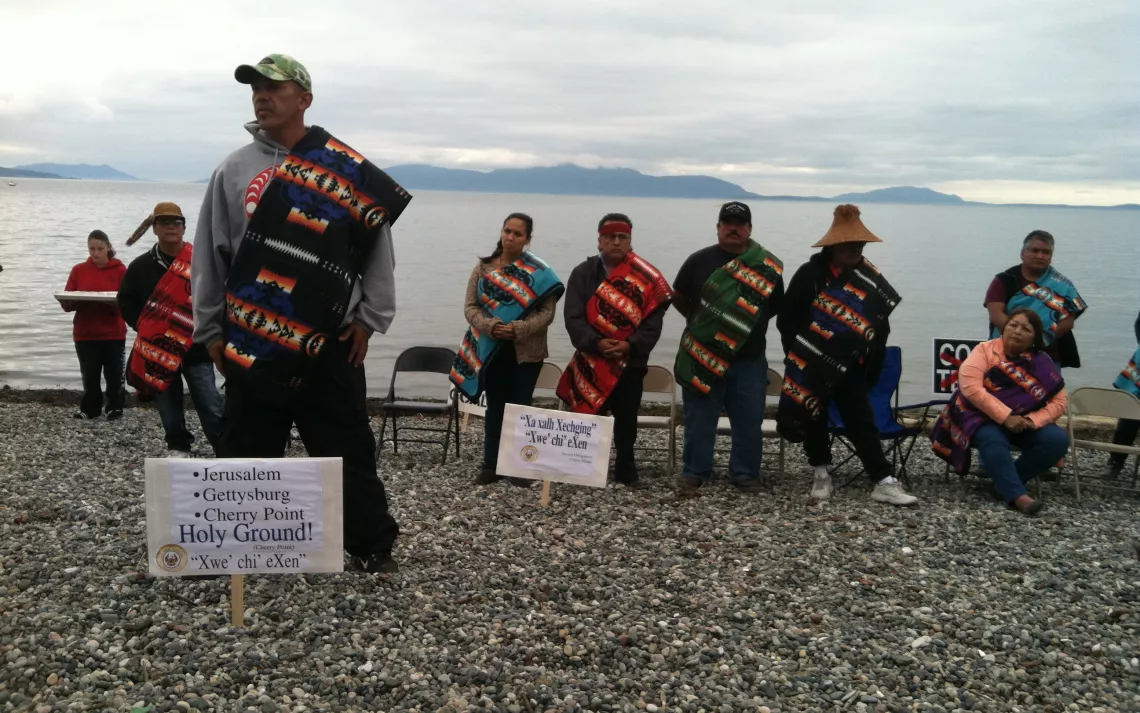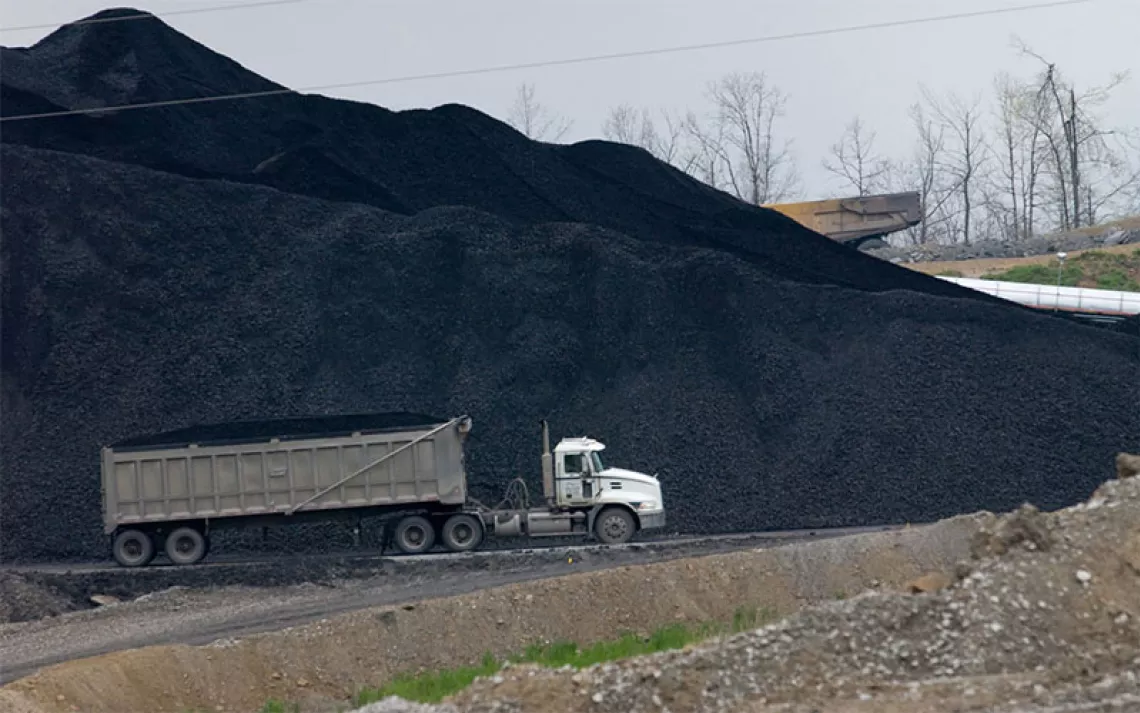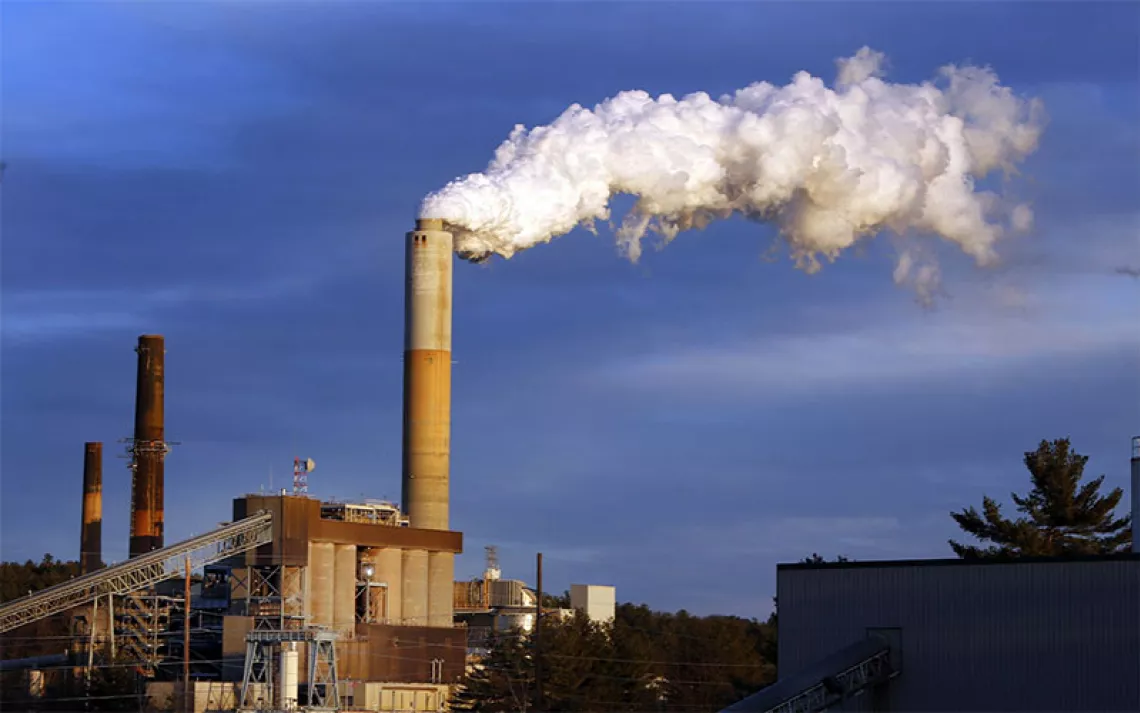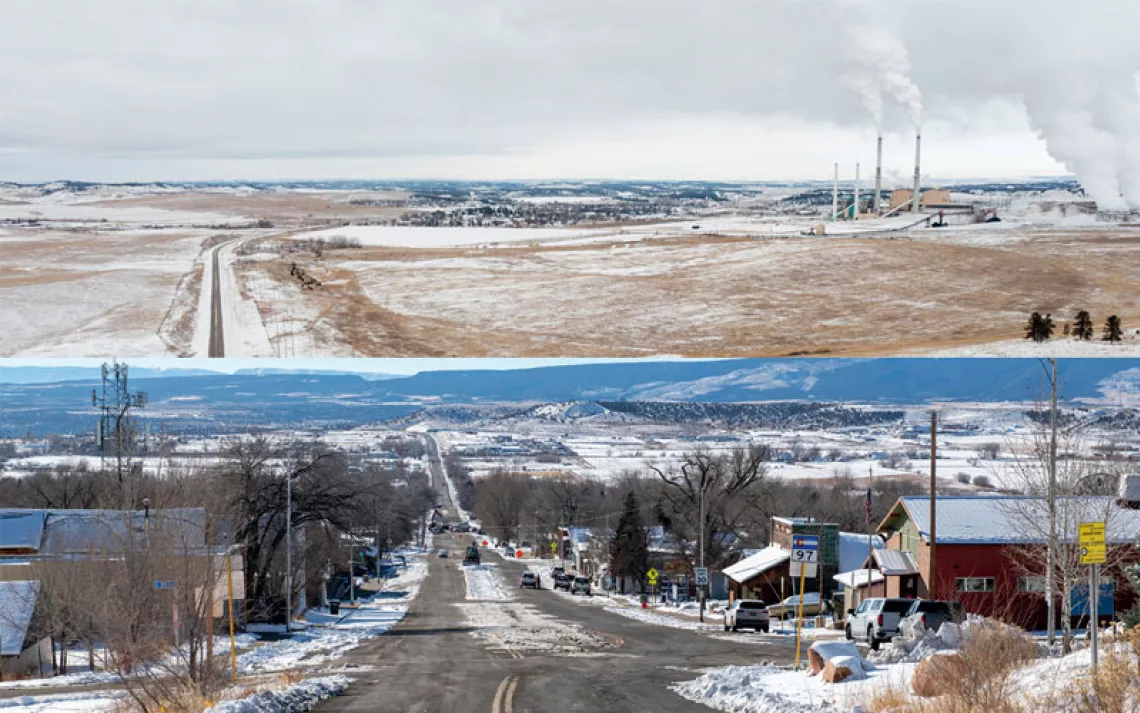All in a Name: Gateway Pacific Coal Terminal, or Xwe’chi’eXen?

Unlike sunlight or wind, fossil fuels need to be transported from their point of origin to the place where they're exploited for energy. Hence the ongoing battle over the Keystone XL Pipeline to carry Canada's dirty tar-sands oil to the U.S. Gulf Coast for export to Asia. (President Barack Obama announced just today that he would veto anticipated GOP legislation mandating construction of the pipeline.) A similar struggle involves the coal industry's desperate attempts to transport the massive reserves of the Powder River Basin to the furnaces of China and South Korea via a series of huge coal-export terminals in the Pacific Northwest. That effort has not been faring well--just last August, Oregon officials denied Ambre Energy's proposal for an export facility on the Columbia River. "The denial of a dock permit by the Oregon Department of State Lands leaves just two proposals on the table, the Gateway Pacific Terminal at Cherry Point north of Bellingham, and the Millennium Terminal at Longview on the Columbia River."
The proposed Gateway Pacific Coal Terminal at Cherry Point was the subject of Jeff Galbraith's Warrior Up in Sierra's March/April 2014 issue:
In this far northwestern corner between Bellingham, the North Cascades, and Vancouver, British Columbia, fishing for salmon and herring supports a rich local culture, as it has for millennia. For the Lummi Nation, a community that has existed at Cherry Point for 175 generations, the annual migrations of sockeye, coho, chinook, pink, and chum salmon to the Nooksack River are their literal and spiritual connection to the earth. It would be hard to overstate their importance to a society that has developed what is still the most sustainable fishery on the West Coast . . . .
In 2011, SSA Marine began filing permit requests to build a new coal export terminal. In addition to the snaking trains carrying crude oil to refineries and the endless conveyor of tankers toting the refined fuel to China and India, the proposed terminal would be capable of shipping 48 million tons of coal per year. Up to 18 additional trains per day--open hoppers loaded with coal stripmined from Wyoming's Powder River basin--would run through the heart of the Lummi Nation. The coal would then be transferred onto vessels three times the length of a football field, shipped over sea lanes that would eat upwards of 20 percent of Lummi fishing grounds, and finally delivered to power plants in Asia, primarily in China.
Now the Lummi Nation has sent a tough letter to the U.S. Army Corps of Engineers, demanding that the agency deny a permit for the proposed coal port.
The Lummi have harvested at this location since time immemorial and plan to continue into the future. The proposed project will impact this significant treaty harvesting location and will significantly limit the ability of tribal members to exercise their treaty rights.
Additionally, the Lummi Nation has a sacred obligation to protect Xwe’chi’eXen based on the area’s cultural and spiritual significance. The Corps is obligated to comply with the mandates of the National Historic Preservation Act, specifically section 106, in evaluating the project’s potential impacts. This obligation is in addition to the Corps’ obligations that spring from our treaty rights. The Lummi Nation is opposed to this project due to the cultural and spiritual significance of Xwe’chi’eXen. and intends to use all means necessary to protect it.
Looking at you now, Army Corps. Do you really want to mess with the Lummi Nation?
 The Magazine of The Sierra Club
The Magazine of The Sierra Club



